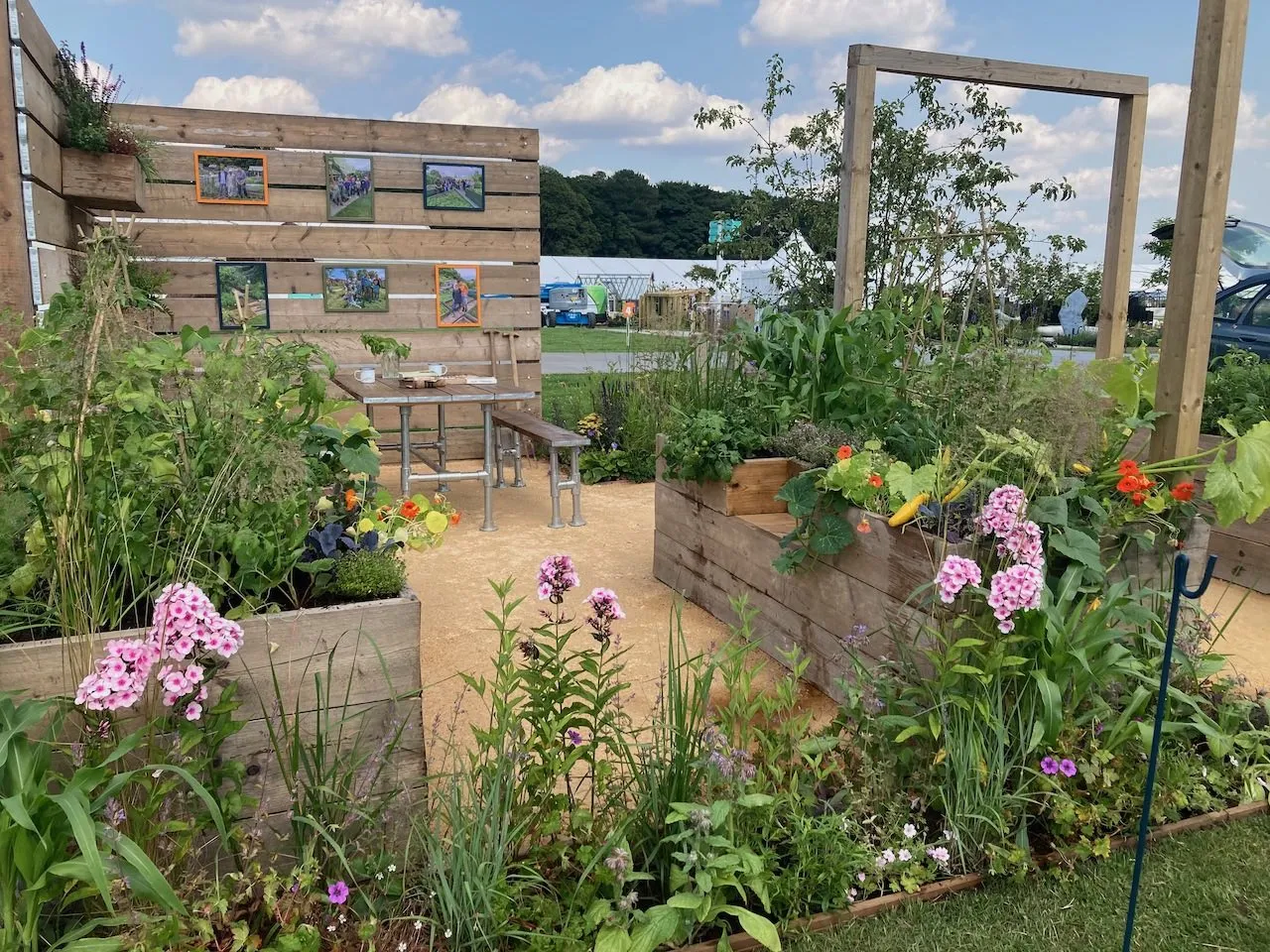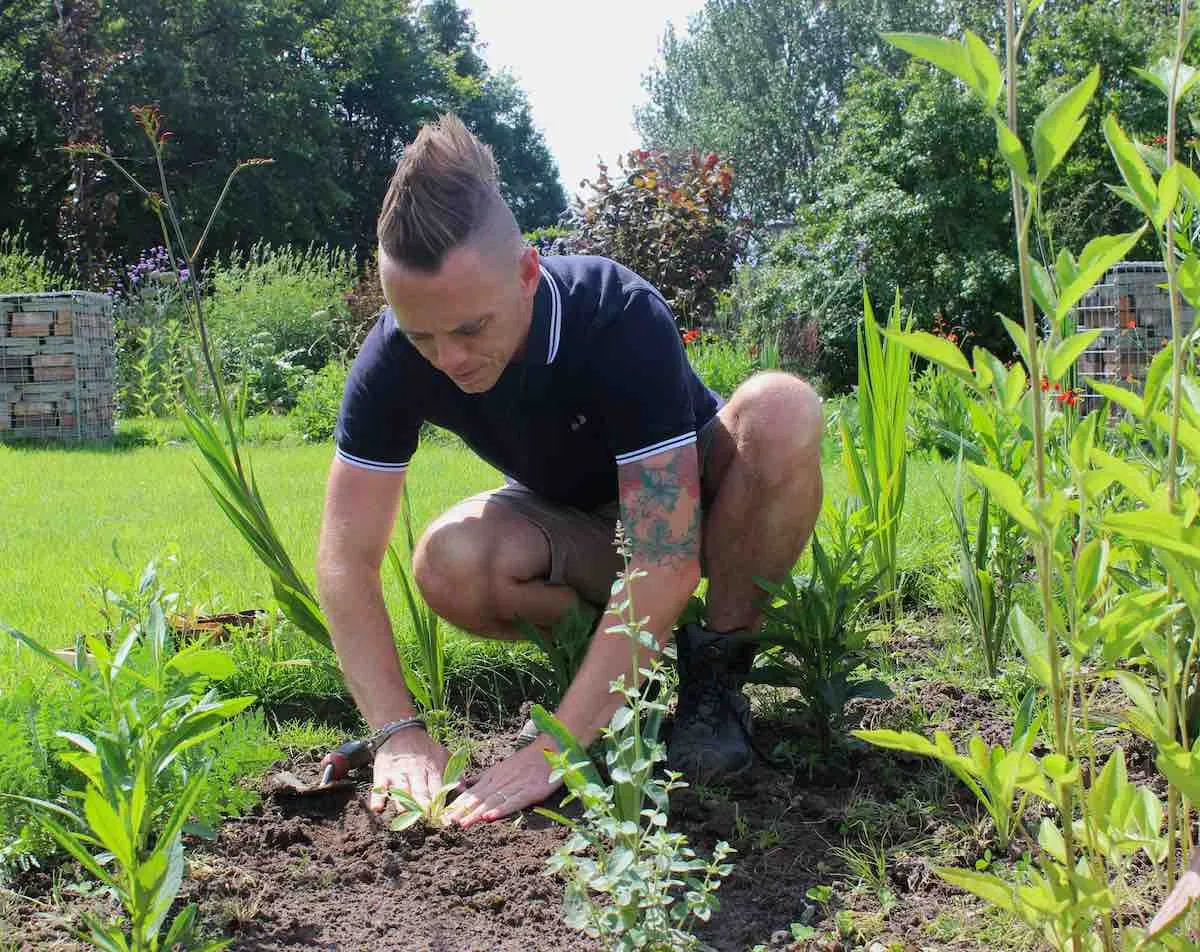Hi @firedance
Welcome to the Garden Ninja Gardening community!
Many new gardeners ask about soil improvement especially when growing hungry plants like vegetables. I'll provide you with some advice for getting your garden and soil ready to grow a range of beautiful vegetables.
The key to soil improvement is always adding organic matter, like peat-free compost, leaf mould or well-rotted manure.
The one thing you want to avoid doing is simply adding plant food to poor soil, as this overfeeding simply washes away with the rain and can be a real waste of money. Feed your plants with rich organic natural matter like compost or rotted garden clippings first. Only add plant feed when the soil is open, well mulched, and plants are growing vigorously. Don't bother feeling young plants or seedlings, as they simply don't need this excess feed. It's only when plants get mature or start to flower or fruit that they may require plant food.
https://youtu.be/iFc7YByFIeo
How to improve soil
Vegetables are one of the most demanding plant types to grow as they put on a lot of growth in one season. Meaning they take a lot from the soil and need more watering and care than, say, shrubs, trees or herbaceous perennials.
You can never fully change your soil, but the best way is to add thick layers of compost mulch, especially to clay soil.
https://youtu.be/ptBotSa2wpw
Don't bother digging over clay soil. You will only make it worse and add to the compaction. Add the mulch and let nature do the rest. Over a year or two, it will slowly start to pen up the soil, adding air and freeing up the structure into a more loamy texture.
Growing vegetables in clay soil
Some vegetables will work in clay soil, squash and pumpkins, for example, along with lettuce, chard, broccoli and other shallow-rooting vegetables. Also, cabbage that doesn't like disturbance prefers heavy clay soil. Many other vegetables that need more free-draining soil will struggle, and their roots may even rot.
Vegetables that like clay soil
Here are some common vegetables that will be fine in clay soil.
Cabbage - Cabbage plants generally tolerate clay soil, and their strong root systems can penetrate through the dense texture.
Kale: Kale is known for its hardiness and can adapt to various soil types, including clay.
Collard Greens: Collard greens, like kale, are sturdy plants that can grow in clay soil, particularly if the soil is enriched with organic matter.
Turnips: Turnips can thrive in clay soil, and their roots can penetrate the soil effectively.
Garlic: Garlic tends to do well in clay soil as long as it is well-draining.
Shallots: Shallots, similar to garlic, can tolerate clay soil conditions.
Chard: Swiss chard is a versatile vegetable that can adapt to different soil types, including clay.
Rhubarb: Rhubarb is a perennial plant that can tolerate heavier soils, including clay.
Asparagus: Asparagus is a deep-rooted perennial that can do well in clay soil if well-drained.
Horseradish: Horseradish is known for its resilience and can grow in various soil types, including clay.
The best trick when working with clay soil is to use raised beds to build up the clay and add your own soil and compost for the vegetables to grow in. You can read more on raised beds here and how to build them.

Vegetables that don't like clay soil
Here's a list of vegetables that typically don't thrive in clay soil:
Carrots: Carrots require loose, well-draining soil to develop straight and unimpeded roots. Heavy clay can cause deformities and hinder growth.
Radishes: Similar to carrots, radishes prefer loose, friable soil for proper root development. Clay soil may result in misshapen or stunted radishes.
Potatoes: Potatoes benefit from well-draining soil to prevent waterlogged conditions, which can lead to diseases and rot.
Onions: Onions prefer loose, sandy soil. Clay can impede bulb formation and increase the risk of disease.
Tomatoes: While tomatoes can tolerate a variety of soils, they generally prefer well-draining loam. Clay soil may lead to poor aeration and drainage.
Peppers: Peppers thrive in well-draining soil with good aeration. Clay soil may limit root growth and nutrient absorption.
Cucumbers: Cucumbers prefer loose, well-draining soil. Clay soil may impede drainage and increase the risk of fungal diseases.
I hope that helps get you started!
All the best
Lee Garden Ninja
Hi @firedance
Welcome to the Garden Ninja Gardening community!
Many new gardeners ask about soil improvement especially when growing hungry plants like vegetables. I'll provide you with some advice for getting your garden and soil ready to grow a range of beautiful vegetables.
The key to soil improvement is always adding organic matter, like peat-free compost, leaf mould or well-rotted manure.
The one thing you want to avoid doing is simply adding plant food to poor soil, as this overfeeding simply washes away with the rain and can be a real waste of money. Feed your plants with rich organic natural matter like compost or rotted garden clippings first. Only add plant feed when the soil is open, well mulched, and plants are growing vigorously. Don't bother feeling young plants or seedlings, as they simply don't need this excess feed. It's only when plants get mature or start to flower or fruit that they may require plant food.
How to improve soil
Vegetables are one of the most demanding plant types to grow as they put on a lot of growth in one season. Meaning they take a lot from the soil and need more watering and care than, say, shrubs, trees or herbaceous perennials.
You can never fully change your soil, but the best way is to add thick layers of compost mulch, especially to clay soil.
Don't bother digging over clay soil. You will only make it worse and add to the compaction. Add the mulch and let nature do the rest. Over a year or two, it will slowly start to pen up the soil, adding air and freeing up the structure into a more loamy texture.
Growing vegetables in clay soil
Some vegetables will work in clay soil, squash and pumpkins, for example, along with lettuce, chard, broccoli and other shallow-rooting vegetables. Also, cabbage that doesn't like disturbance prefers heavy clay soil. Many other vegetables that need more free-draining soil will struggle, and their roots may even rot.
Vegetables that like clay soil
Here are some common vegetables that will be fine in clay soil.
Cabbage - Cabbage plants generally tolerate clay soil, and their strong root systems can penetrate through the dense texture.
Kale: Kale is known for its hardiness and can adapt to various soil types, including clay.
Collard Greens: Collard greens, like kale, are sturdy plants that can grow in clay soil, particularly if the soil is enriched with organic matter.
Turnips: Turnips can thrive in clay soil, and their roots can penetrate the soil effectively.
Garlic: Garlic tends to do well in clay soil as long as it is well-draining.
Shallots: Shallots, similar to garlic, can tolerate clay soil conditions.
Chard: Swiss chard is a versatile vegetable that can adapt to different soil types, including clay.
Rhubarb: Rhubarb is a perennial plant that can tolerate heavier soils, including clay.
Asparagus: Asparagus is a deep-rooted perennial that can do well in clay soil if well-drained.
Horseradish: Horseradish is known for its resilience and can grow in various soil types, including clay.
The best trick when working with clay soil is to use raised beds to build up the clay and add your own soil and compost for the vegetables to grow in. You can read more on raised beds here and how to build them.

Vegetables that don't like clay soil
Here's a list of vegetables that typically don't thrive in clay soil:
Carrots: Carrots require loose, well-draining soil to develop straight and unimpeded roots. Heavy clay can cause deformities and hinder growth.
Radishes: Similar to carrots, radishes prefer loose, friable soil for proper root development. Clay soil may result in misshapen or stunted radishes.
Potatoes: Potatoes benefit from well-draining soil to prevent waterlogged conditions, which can lead to diseases and rot.
Onions: Onions prefer loose, sandy soil. Clay can impede bulb formation and increase the risk of disease.
Tomatoes: While tomatoes can tolerate a variety of soils, they generally prefer well-draining loam. Clay soil may lead to poor aeration and drainage.
Peppers: Peppers thrive in well-draining soil with good aeration. Clay soil may limit root growth and nutrient absorption.
Cucumbers: Cucumbers prefer loose, well-draining soil. Clay soil may impede drainage and increase the risk of fungal diseases.
I hope that helps get you started!
All the best
Lee Garden Ninja
 Lee Burkhill: Award Winning Designer & BBC 1's Garden Rescue Presenters Official Blog
Lee Burkhill: Award Winning Designer & BBC 1's Garden Rescue Presenters Official Blog



